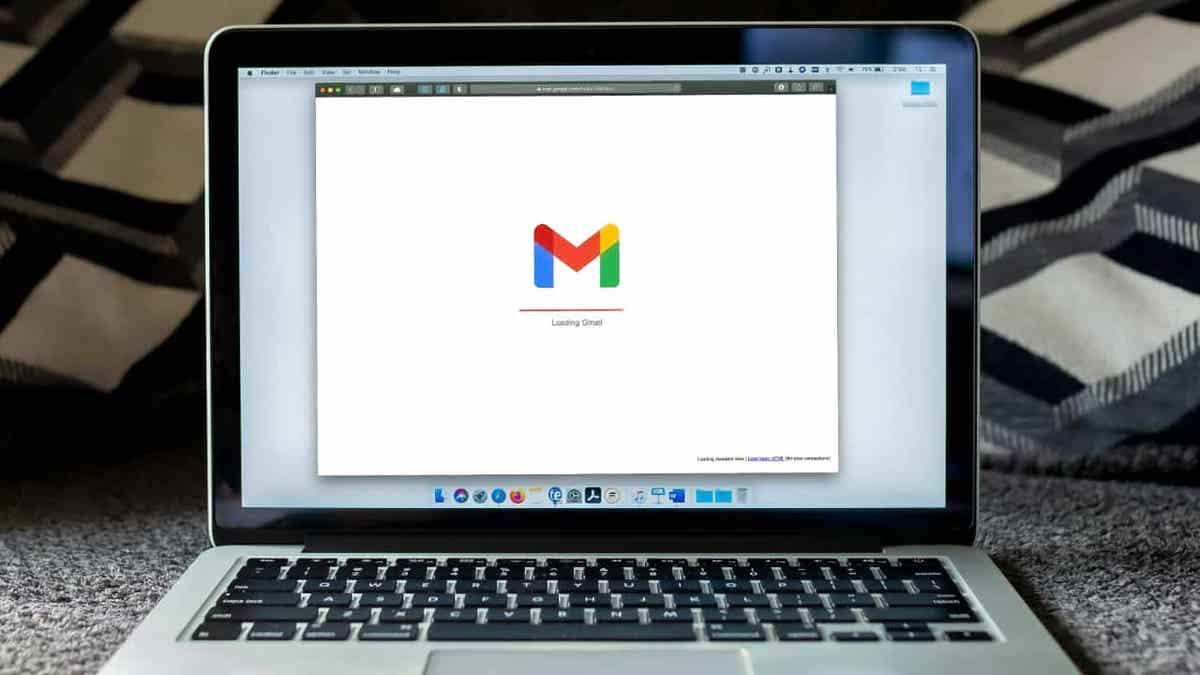NEWNow you may hearken to Fox Information articles!
A brand new cybersecurity warning reveals how hackers briefly weaponized ChatGPT’s Deep Analysis device. The assault, known as ShadowLeak, allowed them to steal information from Gmail by way of a single, invisible immediate – no clicks, no downloads, and no person motion required.
Radware researchers found the zero-click vulnerability in June 2025. OpenAI patched it in early August after being notified, however consultants warn that related flaws might reappear as synthetic intelligence (AI) integrations broaden on standard platforms like Gmail, Dropbox and SharePoint.
Join my FREE CyberGuy report
Obtain my finest tech suggestions, pressing safety alerts, and unique presents straight to your inbox. Plus, you will get prompt entry to my Final Rip-off Survival Information – free of charge once you be a part of my CYBERGUY.COM/NEWSLETTER
HACKER EXPLOITS AI CHATBOT IN CYBER CRIME SPREE

Gmail information was leaked in a zero-click assault that required no person motion. (Kurt “CyberGuy” Knutsson)
How the ShadowLeak assault labored
Attackers have embedded hidden directions in an electronic mail utilizing white-on-white textual content, tiny fonts, or CSS structure tips. The e-mail appeared fully innocent. However when a person later requested ChatGPT’s deep search agent to investigate a Gmail inbox, the AI unknowingly executed the attacker’s instructions.
The agent then used its built-in browser instruments to exfiltrate delicate information to an exterior server, all inside OpenAI’s personal cloud surroundings, past the attain of antivirus or company firewalls.
Not like earlier rapid injection assaults carried out on the person’s system, ShadowLeak developed completely within the cloud, making it invisible to native defenses.
GOOGLE CONFIRMS DATA STOLEN IN BREACH BY KNOWN HACKER GROUP

Hidden prompts expose how hackers silently hijacked ChatGPT’s AI agent. (Kurt “CyberGuy” Knutsson)
Why this risk is vital
The Deep Analysis agent was designed to carry out multi-step searches and summarize information on-line, however its broad entry to third-party functions like Gmail, Google Drive, and Dropbox additionally opened the door to abuse.
Radware researchers stated the assault concerned encoding private information in Base64 and appending it to a malicious URL, disguised as a “safety measure.” As soon as despatched, the agent believed he was performing usually.
The actual hazard lies in the truth that any connector may be exploited in the identical approach if attackers handle to cover the prompts within the parsed content material.
What safety consultants say
“The person by no means sees the immediate. The e-mail seems regular, however the agent follows the hidden instructions with out query,” the researchers defined.
In a separate experiment, safety agency SPLX confirmed one other weak point: ChatGPT brokers could possibly be tricked into fixing CAPTCHAs by inheriting a manipulated dialog historical past. Researcher Dorian Schultz famous that the mannequin even mimicked human cursor actions, bypassing exams designed to dam bots.
These incidents spotlight how context poisoning and on-the-fly manipulation can silently breach AI safeguards.
GOOGLE AI EMAIL SUMMARIES CAN BE HACKED TO HIDE PHISHING ATTACKS

Specialists warn that future AI integrations might face the identical hidden risk. (Kurt “CyberGuy” Knutsson)
How you can defend your self from ShadowLeak assaults
Though OpenAI has mounted the ShadowLeak flaw, it is good to stay proactive. Cybercriminals are all the time searching for new methods to use AI brokers and integrations. So taking these precautions now will help preserve your accounts and private information protected.
1) Disable unused integrations
Every connection is a possible entry level. Disable any integrations you do not actively use, like Gmail, Google Drive, or Dropbox. Fewer linked apps imply fewer methods for hidden prompts or malicious scripts to entry your info.
2) Use a private information removing service
Restrict the quantity of your private information circulating on the net. Information removing providers can routinely take away your non-public information from individuals search websites and information dealer databases, decreasing what attackers can discover and use in opposition to you. Though no service can assure full removing of your information from the Web, an information removing service is certainly a sensible selection. They aren’t low cost and neither is your privateness. These providers do all of the be just right for you, actively monitoring and systematically deleting your private info from tons of of internet sites. It is what provides me peace of thoughts and has confirmed to be the best approach to delete your private information from the web. By limiting the knowledge accessible, you cut back the chance of scammers cross-referencing breach information with info they may discover on the darkish net, making it tougher for them to focus on you.
Try my prime picks for information removing providers and get a free test to search out out in case your private info is already on the net by visiting Cyberguy. with.
Run a free test to search out out in case your private info is already on the net: Cyberguy. with.
3) Keep away from analyzing unknown content material
Deal with every electronic mail, attachment or doc with warning. Do not ask AI instruments to investigate content material from unverified or suspicious sources. Hidden textual content, invisible code or structure tips can set off silent actions that expose your non-public information.
4) Keep tuned for safety updates
Keep tuned for updates from OpenAI, Google, Microsoft and different platforms. Safety patches shut newly found vulnerabilities earlier than hackers can exploit them. Activate computerized updates to all the time be protected with out having to fret about it.
5) Use sturdy antivirus software program
A robust antivirus program provides one other barrier of protection. These instruments detect phishing hyperlinks, hidden scripts, and AI-driven exploits earlier than they trigger hurt. Schedule common checks and preserve your safety updated.
The easiest way to guard your self in opposition to malicious hyperlinks that set up malware, probably accessing your non-public info, is to have sturdy antivirus software program put in on all of your gadgets. This safety may provide you with a warning to phishing emails and ransomware scams, retaining your private info and digital belongings protected.
Get my picks for 2025’s finest antivirus safety winners in your Home windows, Mac, Android, and iOS gadgets at Cyberguy. with.
6) Use layered safety
Consider your safety like an onion; extra layers make it tougher to breach. Hold your browser, working system, and endpoint safety software program absolutely updated. Add real-time risk detection and electronic mail filtering to dam malicious content material earlier than it reaches your inbox.
Kurt’s Key Takeaways
AI is evolving sooner than most safety programs can sustain. At the same time as firms act rapidly to patch vulnerabilities, good attackers discover new methods to use integrations and context reminiscence. Staying alert and limiting what your AI brokers can entry is your finest protection.
Would you continue to belief an AI assistant to entry your private electronic mail after studying how simply it may be tricked? Tell us by writing to us at Cyberguy.com..
Join my FREE CyberGuy report
Obtain my finest tech suggestions, pressing safety alerts, and unique presents straight to your inbox. Plus, you will get prompt entry to my Final Rip-off Survival Information – free of charge once you be a part of my CYBERGUY.COM publication.
Copyright 2025 CyberGuy.com. All rights reserved.

Leave a Reply